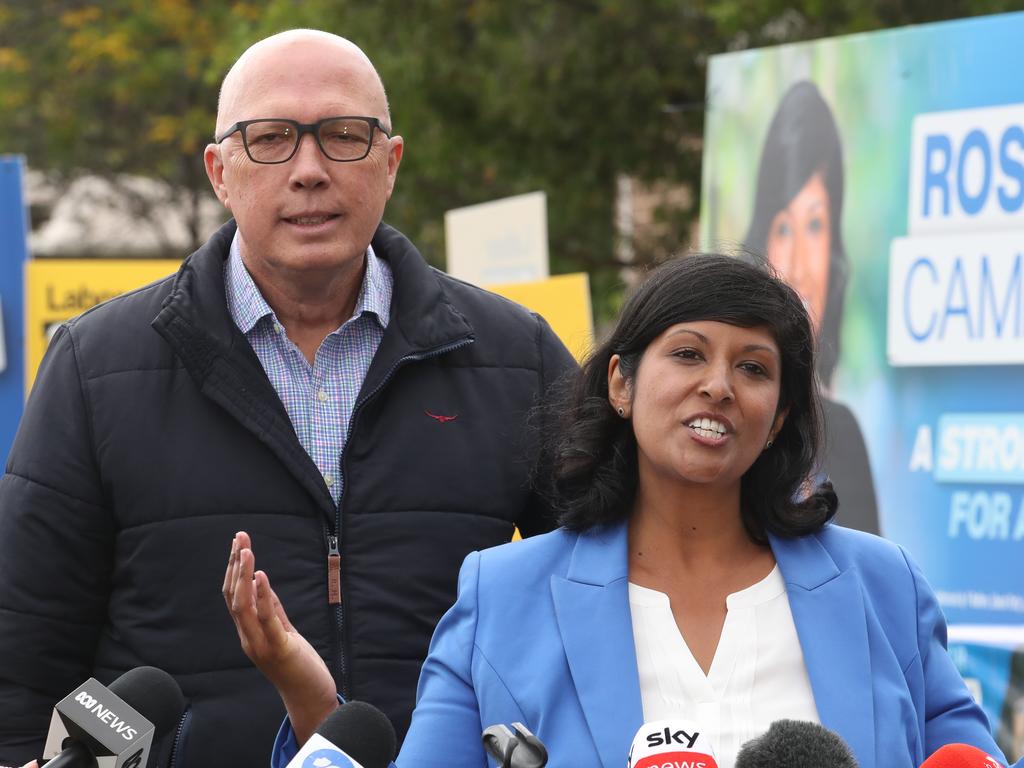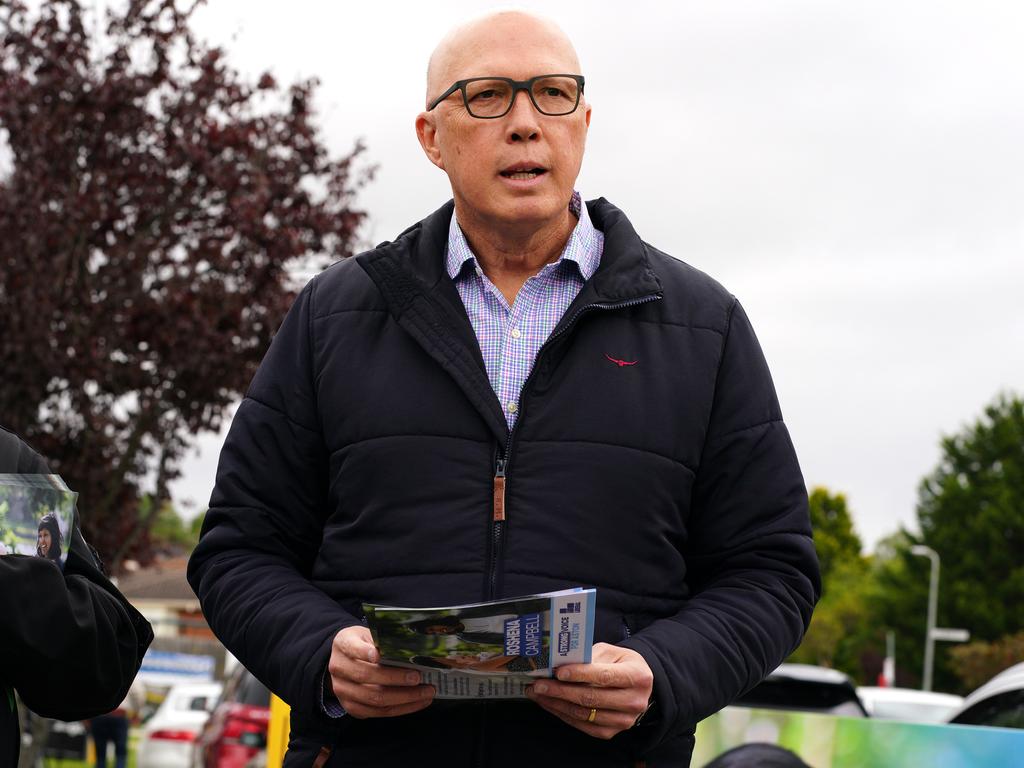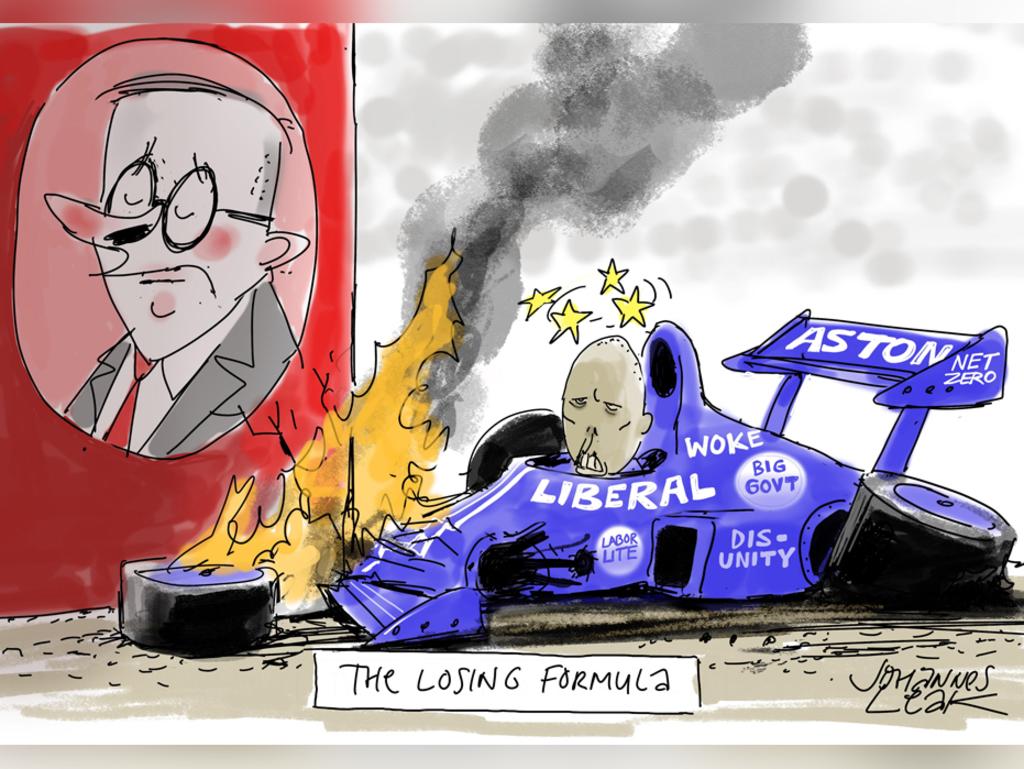Opposition narrative must focus on issues that matter

The latest Newspoll, published on Monday, will rub salt into the wound. The Albanese government extended its two-party-preferred lead by one point to 55-45, Labor’s primary vote edged up a point to 38 and the Coalition’s fell back to 33. But, while the mainland political map is all red, margins are tight, evidenced by the fact that in NSW, Labor finds itself in minority government.
In the national interest, as well as that of the Liberal Party, the Opposition Leader and the heads of the party’s organisational wing must rebuild the party’s base. At last year’s federal election, and in NSW, delays and internal, factional antagonism over preselections hurt the party. In Melbourne, much has been made in the Aston wash-up about barrister and Melbourne City councillor Roshena Campbell’s being “parachuted in’’ from the other side of town. She was an excellent candidate, with potential to be a frontbencher. But more should have been done, such as a local preselection, to ensure she won the support of local party members, whose campaigning should have been crucial.
Mr Dutton has no shortage of advice in the media, the twittersphere and from stakeholders about how and why the party should lurch to the left or right on current hot-button issues such as climate policy. Ten months after the federal election, it is too early for the opposition to devise and present detailed policies. Setting out broad, clear principles and priorities, however, is vital. As John Howard wrote after the federal election last year: “The single largest failure of the Coalition was that it did not present to the Australian people a clear policy manifesto for the future.’’ In other words, voters need to know what the party and the Coalition stand for and the issues on which they would differ substantially from the government.
The government was riding high on its honeymoon, Mr Dutton told The Australian on Sunday. “A lot of the issues we are fighting on today, and the markers we are putting on the ground today, won’t return dividends for another six to 12 months.’’ The policy work was under way. In addition to reinforcing the party’s traditional strengths of aspiration, small business, lower taxes and smaller government, further education reform, more affordable power and providing greater choice and flexibility in industrial relations to foster productivity need to be factored in.
Freedom of expression is also vital. But however high feelings run in sections of the electorate on issues such as transgender bathrooms, they are peripheral issues. The conniptions in the Victorian state opposition over leader John Pesutto’s failed effort to expel Moira Deeming from the partyroom during the Aston campaign made the party look like a rabble. The ham-fisted overkill made Mr Pesutto’s call on Sunday for reform of the party at federal level to demonstrate “we are committed to being an inclusive, welcoming and engaging party’’ seem faintly ridiculous.
Mr Dutton may find that his comment on Sunday that “I don’t believe that our MPs should be going to anti-anything rallies, to be honest” (apart from anti-Labor rallies) comes back to bite him in future. What matters far more is showing that the Coalition has the expertise to carve out a productivity-enhancing policy alternative to “Canberra’s utopian top-down solutions and fiscal recklessness, so (it) can focus on bread-and-butter issues, such as housing affordability and cost-of-living crises, which an energy crisis would worsen’’, as Tom Switzer, executive director of the Centre for Independent Studies, writes.
Aston is a mortgage-belt seat, which suggests the opposition failed to cut through against the government on economic policy, inflation and living costs. Those issues will become tougher for the government in the next year if interest rates continue to climb. Labor’s climate policy, centred on the safeguard mechanism passed with the support of the Greens last week, is also likely to become problematic. The legislation will put the brakes on coal and gas projects, restricting energy supply and driving up prices. As we argued on Saturday, Australia’s “quiet quitting” of the LNG business also has potentially dangerous geostrategic consequences. Australia’s lost opportunity will enrich our strategic rivals such as Russia, China and Iran, a point made by Japan’s biggest energy company, Inpex.
While Mr Dutton has been under pressure to move to the right or to the left on policy, his main job after the May election last year was to hold his party together. He has done a reasonable job considering the dysfunction in the state branches, especially Victoria. As he sets out to promote a classically liberal-conservative vision, which should have much to offer individuals, families and the nation, the party needs to be clearer about what it believes in, and sufficiently committed to argue the case.





Australia has been well served for decades by robust contests between the nation’s major political players. At times, major swings of the pendulum have been inevitable. But the system is normally at its best when Labor and the Coalition are both competitive, holding each other to account in office, fighting a battle of ideas in the nation’s interest. The Liberal Party’s one-in-103-year loss in the southeast Melbourne seat of Aston is a body blow. Coming a week after the loss of a competent but tired NSW Coalition government, ushering in coast-to-coast Labor governments on the mainland, negative superlatives are flowing about the result for Peter Dutton and his party – cataclysmic, catastrophic, disaster, crisis, earthquake.